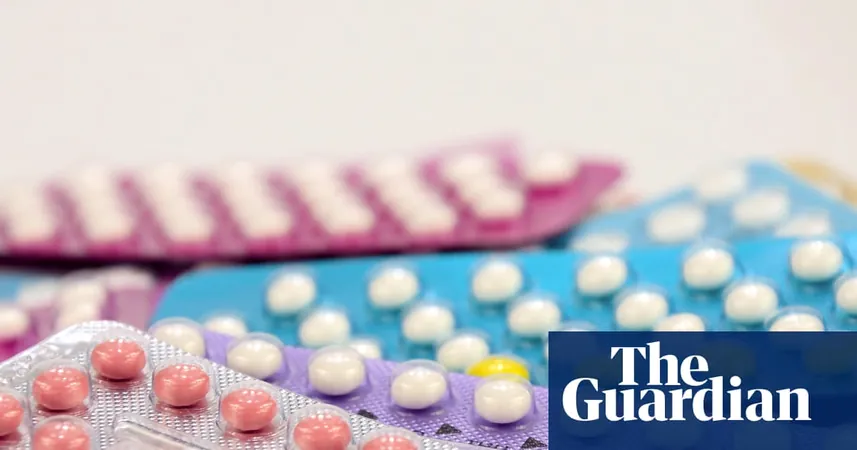
Social Media Myths Driving Women Away from the Pill: Shocking Study Reveals
2025-09-13
Author: John Tan
A recent study unveils a disturbing trend: social media misinformation is steering women away from the contraceptive pill. Researchers have pinpointed false narratives circulating on platforms like TikTok as a significant factor influencing women’s perceptions of the pill, leading many to abandon it altogether.
This phenomenon can be attributed to the "nocebo effect"—the psychological counterpart to the placebo effect. Many women are experiencing real side effects fueled by anxiety, depression, and fatigue, all of which are exacerbated by negative beliefs surrounding contraceptive use.
Despite being the most popular form of contraception in England, usage of the pill has plummeted, dropping from 39% in 2020-21 to just 28% in 2023-24 among those accessing NHS sexual health services. Alarmingly, two-thirds of women stop using the pill within two years, a trend that correlates with rising abortion rates, which surged to a record 251,377 in 2022—a staggering 17% increase from the previous year.
Health experts are sounding the alarm on the impact of influencers on platforms like TikTok and YouTube, who are promoting alternatives to hormonal contraception and warning against the pill itself. One influencer claimed the pill "robs us of our health" citing alleged risks like blood clots and thyroid issues.
Dr. Rebecca Webster and Lorna Reid from Sheffield University identified four key psychological factors behind the nocebo effect among women taking the pill. These include a pre-existing expectation of harm, a lack of confidence in medicine, the belief that medications are over-prescribed and harmful, and a sensitivity to drug effects.
Dr. Webster cautioned, "Many of the commonly reported side effects of hormonal contraception are rooted in psychological responses. These experiences, though psychological, feel very real to women and significantly impact their decisions about contraceptive use."
The study assessed 275 women aged 18-45 who had used the pill in the last 18 months, revealing that 97% reported experiencing at least one side effect. Notably, women’s initial negative expectations about using the pill often led to self-fulfilling prophecies, with negative media portrayals heightening adverse reactions.
Dr. Janet Barter, president of the College of Sexual and Reproductive Healthcare, emphasized that the surge in anti-medication sentiment, fueled by misinformation since the COVID pandemic, is compounded by rising mental health issues among young people—making them more cautious about any potential harm.
Brook, a leading sexual health services provider, voiced concerns that online misinformation is perpetuating the nocebo effect. The head of nursing, Laura Domegan, noted, "Young people are increasingly worried about hormonal contraception due to the alarming myths they've encountered online—such as fears about weight gain and long-term fertility impacts."
The proliferation of these myths is exacerbated by a lack of comprehensive information from healthcare professionals and insufficient education about contraception in schools. Domegan calls for more open discussions regarding the pill and its realities to combat misinformation and its damaging effects.



 Brasil (PT)
Brasil (PT)
 Canada (EN)
Canada (EN)
 Chile (ES)
Chile (ES)
 Česko (CS)
Česko (CS)
 대한민국 (KO)
대한민국 (KO)
 España (ES)
España (ES)
 France (FR)
France (FR)
 Hong Kong (EN)
Hong Kong (EN)
 Italia (IT)
Italia (IT)
 日本 (JA)
日本 (JA)
 Magyarország (HU)
Magyarország (HU)
 Norge (NO)
Norge (NO)
 Polska (PL)
Polska (PL)
 Schweiz (DE)
Schweiz (DE)
 Singapore (EN)
Singapore (EN)
 Sverige (SV)
Sverige (SV)
 Suomi (FI)
Suomi (FI)
 Türkiye (TR)
Türkiye (TR)
 الإمارات العربية المتحدة (AR)
الإمارات العربية المتحدة (AR)